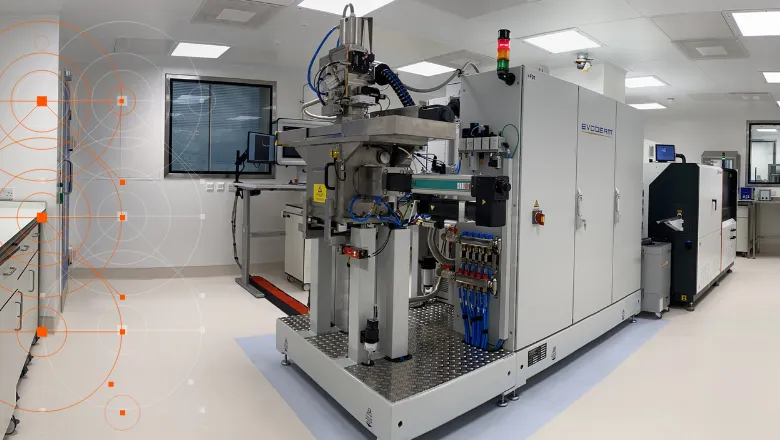King’s College London Launches New Facility for Manufacture of Active Implants and Surgical Instruments
The School of Biomedical Engineering & Imaging Sciences at King’s College London has opened a new facility for the Manufacture of Active Implants and Surgical Instruments (MAISI).

MAISI is a national facility located within the St Thomas’ Hospital in London and aims to streamline the clinical translation of healthcare engineering research and address the lack of specialised and regulated manufacturing facilities within healthcare settings. It has been established by the School in partnership with University College London (UCL) and Newcastle University, with the support of a Wellcome Trust grant of £5.2 million.
“The lack of such a facility hinders academic research which is supported by innovation funding to develop life-saving technologies, and this delays the delivery of patient benefits”, said Professor Sebastien Ourselin. “The MAISI facility will help fill this gap and promote the reputation of UK academic research worldwide.”
MAISI is a unique facility where engineers work alongside quality and regulatory experts to manufacture active implants and surgical instruments designed by researchers, accelerating their first use in humans. Our co-location with LIHE as part of St Thomas’ MedTech Hub places us at the heart of a growing ecosystem focused on delivering the benefits of innovation in healthcare.
Professor Anne Vanhoestenberghe, Director of MAISI
Director of the facility, Professor Anne Vanhoestenberghe said that while many universities have in-house cleanrooms, few in the UK are equipped to manufacture medical devices for use in patients, in particular the most complex active implantable medical devices (AIMD), for which it is crucial to implement a certified Quality Management System (QMS).
The facility’s dedicated manufacturing cleanrooms and regulatory support services are deployed for small batch production of complex devices for use in human studies, including Active Implantable Medical Devices (AIMD) and complex surgical instruments. The cleanrooms operate under a certified QMS, and the facility offers dedicated regulatory support for compliance with the requirements of the UK MHRA and the new Medical Device Regulation.
With the support of Wellcome, we are delighted to continue to build infrastructure that addresses the challenges to clinical translation of complex medical devices. This will ultimately contribute to our goal to accelerate the development and uptake of innovative technologies that improve health outcomes.
Professor Sebastien Ourselin FREng FMedSci, Head of School of Biomedical Engineering & Imaging Sciences
MAISI is co-located within the St Thomas’ MedTech Hub along with centres including the King’s Technology Evaluation Centre (KiTEC), and the London Institute for Healthcare Engineering (LIHE), where it will play a crucial role as part of LIHE’s venture-building programmes for medical device companies, MedTech start-ups and new spinouts from King’s and partners, in the UK and abroad.
The unique MAISI facility houses both an advanced manufacturing facility operated by expert engineers, but also a sizeable team of Regulatory Affairs and Quality Assurance experts, areas of paramount importance in MedTech translation. As part of the London Institute for Healthcare Engineering, MAISI forms both the backbone of the support in those areas for startups and scale-ups requiring this expertise, but also the end-point through its prototyping capabilities for companies with invasive and active technologies. That these teams and capabilities are collocated allows us to provide unparalleled support across the board to companies operating in this field and beyond.
Dr Nicolas Huber, Director of Commercial Operations and Partnerships, London Institute for Healthcare Engineering
The MedTech Hub aims to create an ecosystem of collaboration, fulfilling the School’s mission of accelerating the translation of innovative medical technologies from bench to bedside to boardroom, to advance the benefit to patients in the UK and beyond.

